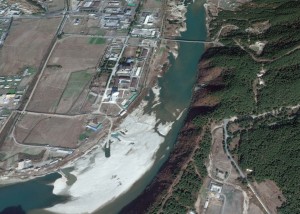
A top North Korean diplomat says his country’s nuclear weapons program is not up for discussion, insisting Pyongyang’s situation is “totally different” from that of Iran.
North Korea’s ambassador to China, Ji Jae Ryong said Tuesday the North does not have “any interest at all in dialogue for unilaterally freezing or giving up our nukes.”
“The situation of the DPRK is totally different to that of Iran. We are a nuclear state, both in name and reality,” Ji said during a rare news conference at the North Korean embassy in Beijing. “As a nuclear state, we have our own interests in a nuclear program.”
The comments come as senior U.S. envoy Sydney Seiler visits Beijing Tuesday for talks on how to revive the stalled six-party nuclear talks with North Korea.
After meeting with officials in Seoul on Monday, Seiler said the U.S. is ready to engage Pyongyang in the same way it helped broker a deal with Iran.
“The recent progress in our efforts at denuclearization with Iran provides an excellent example of the U.S. flexibility and willingness to engage with countries with whom we’ve had long-standing differences,” he said.
Iran and six world powers finalized a deal earlier this month that will limit Iran’s nuclear capabilities in exchange for sanctions relief.
Pyongyang’s foreign ministry last week said any comparison between the North Korean and Iranian nuclear programs is “illogical” and stressing the North needs nukes in order to counter “U.S. military hostilities.”
Ji on Tuesday echoed that sentiment. “We have the power to cope with any kinds of war methods of the U.S. imperialists and have the strong power to restrain the provocative nuclear war acts of the U.S.,” he said.
The isolated Communist country has conducted three nuclear tests. Its most recent test in 2013 prompted the U.N. Security Council, led by China and the United States, to pass severe sanctions on North Korean banking, travel and trade.
North Korea in 2009 walked out of six-nation talks aimed at convincing it to give up its nuclear program in exchange for badly needed aid and security guarantees. Those talks included the two Koreas, the U.S., China, Japan and Russia.
